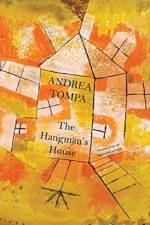av Andrea Tompa
365,-
Set in the 1970s and â¿80s, The Hangmanâ¿s House narrates the life and times of a Hungarian family in Romania. Those were extraordinary times of oppression, poverty and hopelessness, and Andrea Tompaâ¿s latest novel depicts everyday life under the brutal communist dictatorship of Nicolae CeauÈ¿escu, referred to by the narrator as an unnamed âone-eared hangman.â? CeauÈ¿escu is omnipresent throughout the storyâ¿in portraits in classrooms and schoolbooks, in the empty food stores, in TV programs, in obligatory Party demonstrations. Most insidiously, he is present in the dreams and nightmares of common people, who, in this cruel period of history, become cruel to one another, just like the dictator.  Our narrator, a teenage âGirl,â? observes life through tangled, almost interminable sentences, trying to understand and process the many questions in her life: why her family is falling apart; why her mother has three jobs; why her father becomes an alcoholic; why her grandmother dreams of âHungarian timesâ?; and, most troubling, why there is persecution all around. Brutal though the times are, Girlâ¿s narration is far from a mere indictment. It is suffused with love, tenderness and irony.  Written by a woman and featuring a young woman narrator, The Hangman's House focuses intently on how women play the principal roles in holding together the resilient fabric of society. Evocative of the celebrated wry humor that distinguishes the best of Hungarian literature, Tompaâ¿s novel is a tour de force that will introduce a brilliant writer to English-language readers.


